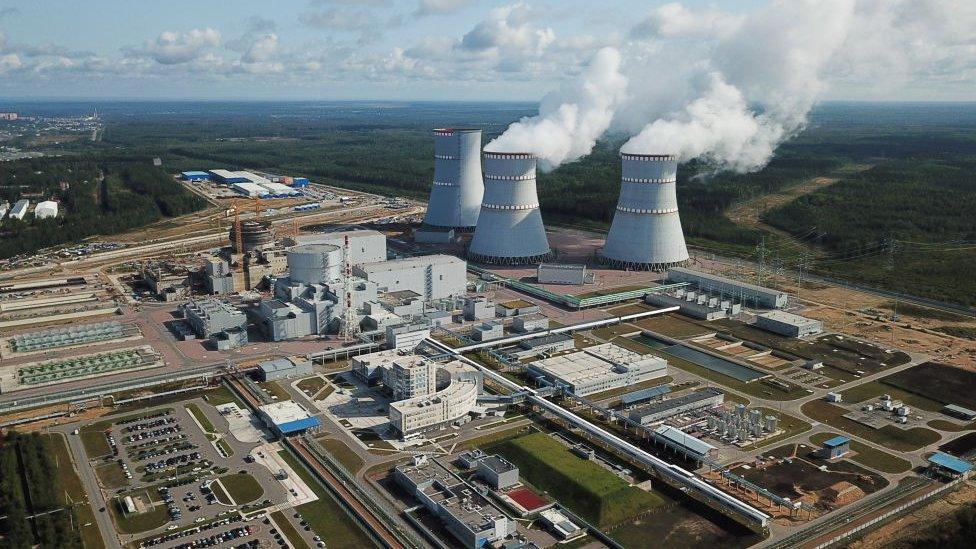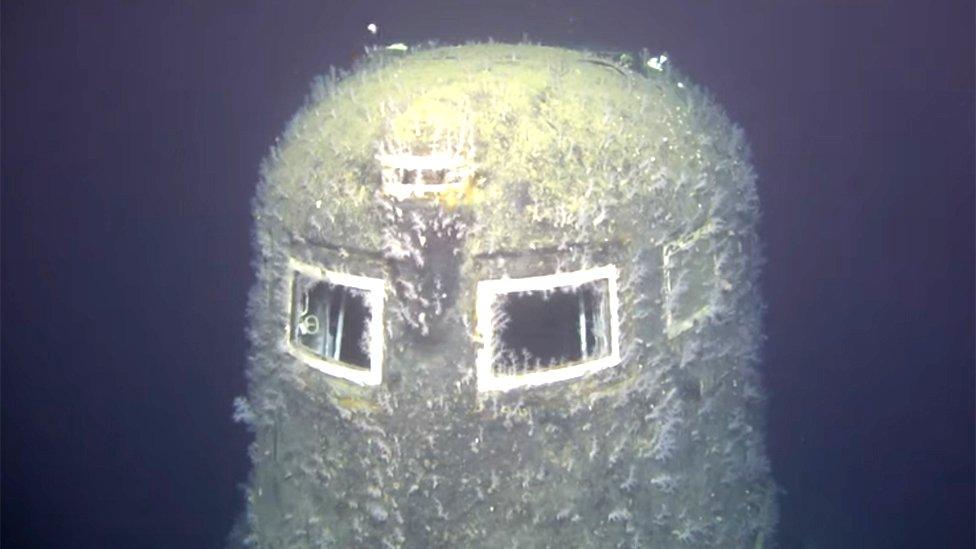Russia denies its nuclear plants are source of radiation leak
- Published

The Leningrad Nuclear Power Plant is operating normally, Russian officials said
Russia has said a leak of nuclear material detected over Scandinavia did not come from one of its power plants.
Nuclear safety watchdogs in Finland, Norway and Sweden said last week they had found higher-than-usual amounts of radioactive isotopes in the atmosphere.
A Dutch public health body said that, after analysing the data, it believed the material came "from the direction of western Russia".
It said the material could indicate "damage to a fuel element".
But in a statement, Russia's nuclear energy body said its two power stations in the north-west - the Leningrad NPP and the Kola NPP - were working normally and that no leaks had been reported.
"There have been no complaints about the equipment's work," a spokesperson for the state controlled nuclear power operator Rosenergoatom told Tass news agency, external.
"Aggregated emissions of all specified isotopes in the above-mentioned period did not exceed the reference numbers."
Radiation levels around the two powers stations "have remained unchanged in June", the spokesperson added.
Lassina Zerbo, executive Secretary of the Comprehensive Nuclear-Test-Ban Treaty Organization (CTBTO) tweeted on Friday that its Stockholm monitoring station had detected three isotopes - Cs-134, Cs-137 and Ru-103 - at higher than usual levels but not harmful to human health.
Allow X content?
This article contains content provided by X. We ask for your permission before anything is loaded, as they may be using cookies and other technologies. You may want to read X’s cookie policy, external and privacy policy, external before accepting. To view this content choose ‘accept and continue’.
The particles were detected on 22-23 June, he said.
The Dutch National Institute for Public Health and the Environment in the Netherlands said on Friday that the composition of the nuclear material "may indicate damage to a fuel element in a nuclear power plant".
The International Atomic Energy Agency - the UN's nuclear watchdog - said on Saturday it was aware of the reports, external and was seeking more information from member states.
- Published11 July 2019
